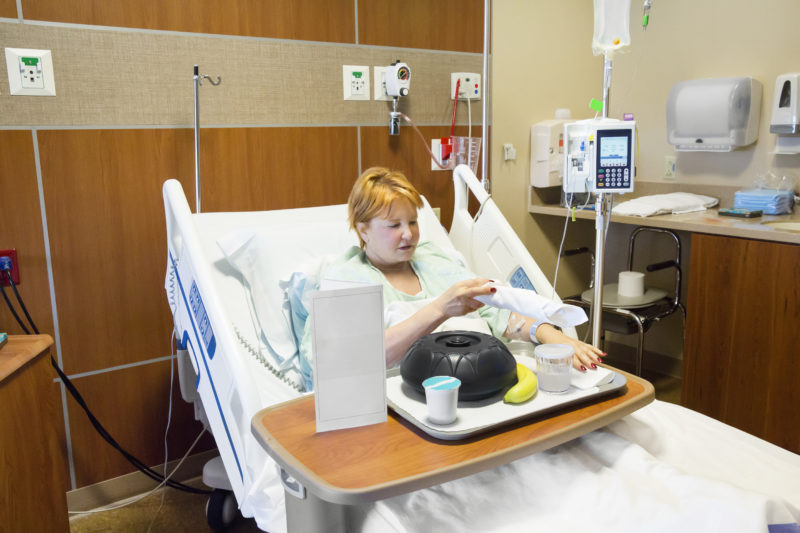How Dietitians Impact Patient Care

By Bushra Hassan MBA, RD, LDN | March 13, 2019
Mention hospital food, and most people call to mind jokes about its taste and quality. Yet, to the 481 million patients each year who are served hospital food, the link between nutrition and optimal health is no laughing matter.
As a dietitian, I’ve noticed prevention is top of mind at many hospitals when it comes to skin injuries and readmissions, while preventing malnutrition is often an afterthought. To make matters worse, when malnutrition does happen, it tends to go undiagnosed. The Journal of Parenteral and Enteral Nutrition found that while previous studies suggested malnutrition was present in between 21% and 54% of hospitalized patients, only 3.2% of U.S. hospital patients actually received a diagnosis of malnutrition.
The data varies across studies, but available evidence shows early nutrition intervention can boost outcomes – reducing complication rates, length of hospital stay, readmission rates, mortality, and cost of care. The key is to fully empower dietitians in order to systematically identify patients who are malnourished or at risk and to promptly intervene to prevent further life threatening complications.
Here are a few of the ways Registered Dietitians can help improve care across the continuum of care:
- Preventing adverse events – A holistic approach to patient care, one that treats the patient as a whole, is significantly more likely to decrease the risk of associated conditions and potential symptoms of malnutrition, such as immune dysfunction, increased risk of infection, delayed recovery from illness and poor wound healing. Administrators crafting proactive strategies that include input from nutrition experts at the outset may improve outcomes and reduce readmissions and adverse events.
- Providing individualized care – As nutrition experts, we are tasked with providing individualized care recommendations to patients to enhance outcomes and treat the individual’s unique challenges. Treatment will vary person to person. It is the dietitian’s job to help train other interdisciplinary professionals on the importance of nutrition, as well as how to identify malnutrition. The more clinicians that can help support the patient to provide better outcomes, the better. As you know, nutrition plays a critical role, in both the hospital setting, and afterwards, in overall quality of life, and patient outcomes. By identifying areas of nutritional weakness early on, we can prevent difficult-to-treat complications later on.
- Supporting care setting transitions – Transitions from one care setting to another can be an especially vulnerable time for patients. Proper nutritional support helps get patients into the best possible shape ahead of transitions, whether from hospital to long-term care facility or from a hospital to the home. For those who may now have to explore tube feeding needs at home, Medline has created Kitchen Blends. This new line of whole food, blenderized meals is designed for nutritionally-conscious families and comes in a variety of flavors like chicken, mixed vegetables and salmon.
By advocating for and treating patients with malnutrition, we nutrition professionals can significantly impact overall patient well-being. Ultimately this helps drive down healthcare overall costs, minimize readmissions and provide patients better overall health and well-being.
Learn more about how Kitchen Blends helps ease transitions to home care.
Bushra Hassan MBA, RD, LDN
Product Manager - Nutrients
Bushra Hassan, MBA, RD, LDN, is an expert in supplement development, nutrition education, wellness coaching, and product brand management. Her work focuses on diet and nutrition, digestive health, and integrative and functional medicine. She enjoys baking, trying new restaurants, and exploring the beautiful city of Chicago.
